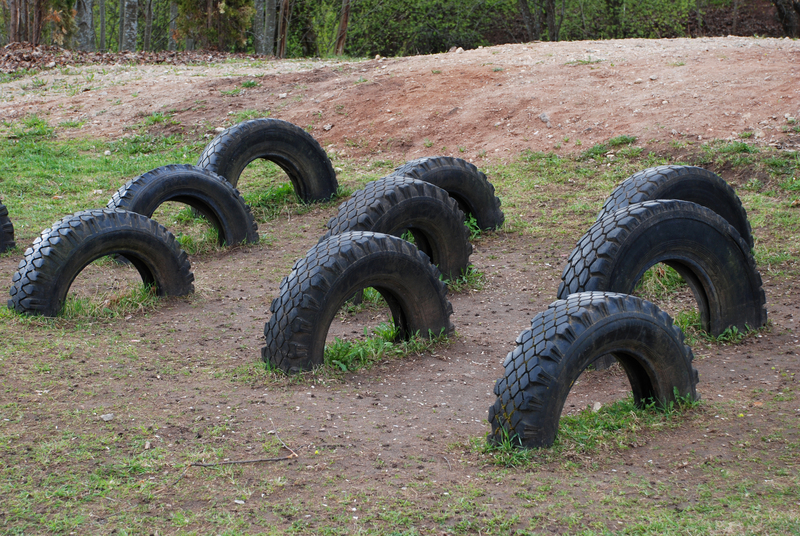Make a Difference: Waste Prevention in Your Home
Becoming environmentally responsible starts right at your doorstep. Waste prevention at home is not just a trend--it's an essential lifestyle choice to reduce your environmental impact, save money, and promote a healthier planet. In this comprehensive guide, we're going to explore practical strategies and effective tips for waste reduction at home, helping you make a real difference for the Earth and future generations.
Why is Household Waste Prevention Important?
Our homes are hotspots of waste generation. From excessive packaging to food scraps, unnecessary disposables, and unwanted items, everything we throw away contributes to overflowing landfills and environmental pollution. By adopting domestic waste prevention measures, you can:
- Decrease your carbon footprint
- Save on utility and grocery bills
- Support resource conservation
- Encourage sustainable habits within your community
Waste minimization at home is a journey, not a destination. Let's embark on this eco-friendly adventure together.

Top Strategies for Household Waste Prevention
1. Start with a Waste Audit
The first step toward preventing waste at home is understanding what you throw away. Analyze your trash for a week:
- List the types of waste: Is it mostly food, packaging, paper, or plastics?
- Identify patterns: Are there items that frequently end up in your bin?
_This process helps you pinpoint areas where you can immediately begin household waste reduction._
2. Practice Mindful Shopping
- Plan your meals and make a shopping list: Prevent impulse buys that often become waste.
- Choose products with minimal or recyclable packaging: Support brands that prioritize sustainability.
- Buy in bulk: Reduces packaging and frequent trips to the store.
- Bring your own reusable bags and containers: Avoid single-use plastics.
Every purchase is a vote for the kind of world you want to live in.
3. Reduce Food Waste with Smart Kitchen Habits
- Store food properly: Use airtight containers, keep your fridge organized, and understand which items require refrigeration or pantry storage.
- Embrace meal prepping and "leftover" recipes: Reinvent yesterday's meals to avoid throwing food away.
- Compost food scraps: Set up a compost bin for fruit peels, vegetable ends, coffee grounds, and eggshells.
- Label and date stored food: Track expiry dates and prioritize older foods.
According to the United Nations, one-third of global food production gets lost or wasted. Home waste prevention can significantly impact this statistic.
4. Rethink Packaging and Single-Use Products
- Switch to reusable containers, wrap, and bottles: Glass jars and stainless steel bottles are durable alternatives.
- Buy loose produce: Choose unpackaged fruits and vegetables whenever possible.
- Say no to disposables: Opt for cloth napkins, washable dishware, and reusable shopping bags.
Small daily choices can dramatically enhance your waste prevention efforts at home.
5. Donate, Sell, and Upcycle Unwanted Items
- Host a garage sale or use online marketplaces: Give your items a new life instead of sending them to the landfill.
- Donate gently used clothes, toys, and electronics: Charities and shelters often welcome these contributions.
- Get creative with upcycling: Transform jars into storage, old t-shirts into cleaning rags, or broken furniture into garden planters.
_Shifting from a "throwaway" mindset to a "reuse and repurpose" attitude is key for significant domestic waste prevention. _
Comprehensive List: Waste Prevention Tips for Every Room
Kitchen
- Use cloth instead of paper towels.
- Embrace a "first in, first out" rule for perishables.
- Set up a dedicated compost bin.
- Purchase refillable cleaning supplies.
Living Room
- Choose digital subscriptions over print magazines or newspapers.
- Invest in durable, timeless furniture instead of "fast furniture."
- Host swap parties with neighbors for books, games, and decor.
Bathroom
- Switch to bar soap and reusable razors.
- Use washable makeup pads.
- Purchase toilet paper made from recycled materials.
Laundry Room
- Wash full loads to save water and energy.
- Use eco-friendly laundry strips or refillable detergents.
- Air-dry clothes whenever possible.
Home Office
- Print only when necessary--switch to digital where possible.
- Donate or recycle old electronics responsibly.
- Buy recycled paper and office supplies.
Waste Prevention in Your Home: Benefits Beyond the Bin
Environmental Impact
Reducing household waste means fewer resources are used in manufacturing and transporting goods, resulting in:
- Less pollution and greenhouse gas emissions
- Reduced strain on landfills
- Conservation of natural resources
Every item you prevent from entering the waste stream counts towards a healthier planet.
Financial & Lifestyle Advantages
Home waste prevention isn't just good for the planet--your wallet benefits too! By:
- Buying less and reusing more, you save money on purchases
- Reducing food waste, you cut grocery bills
- Opting for quality over quantity, you invest in longer-lasting items
Additionally, adopting eco-conscious habits fosters a sense of purpose and community, encourages creativity in reusing materials, and can even lead to a more organized, clutter-free living space.
Waste Prevention vs. Recycling: What's the Difference?
Recycling is important, but waste prevention is even better. Here's why:
- Prevention tackles the problem at the source--by not creating waste in the first place.
- Recycling manages what's already produced, which still requires energy and resources.
The most sustainable home is one that eliminates unnecessary waste before it needs recycling.
Overcoming Barriers to Household Waste Reduction
Transitioning to a waste-conscious household can be challenging, but these handy tips can help:
- Start small: Focus on one habit at a time, such as switching to reusable grocery bags or composting.
- Get your household involved: Make it a family challenge and celebrate your collective wins.
- Educate yourself: Stay updated on local recycling and composting programs.
- Track your progress: Notice your trash shrinking week after week--it's highly motivating!
_Remember: Progress, not perfection, is the goal._
Waste Prevention in Your Home: The Power of Community
Waste reduction is even more powerful when shared. Join local zero-waste groups, community gardens, or environmental initiatives. Host neighborhood swap events or skill-sharing workshops. Inspire others with your journey--for every neighbor you influence, you double your impact.
Community support can make your household waste prevention mission more enjoyable--and more effective!

Frequently Asked Questions about Home Waste Prevention
How can I reduce waste in my apartment or small space?
- Focus on reusables: swap single-use products for compact, reusable alternatives.
- Try small compost solutions, like worm bins or bokashi systems, if you lack outdoor space.
- Edit your possessions regularly to prevent clutter and unnecessary purchases.
Is home waste prevention expensive?
No! While some sustainable products have a higher upfront cost, they often save you money in the long run. Many strategies--like buying less, using up leftovers, and swapping items--are free.
What's the best way to get children involved in waste minimization at home?
- Make it fun: turn recycling and composting into games.
- Let them decorate reusable bags or containers.
- Teach them about the planet through interactive books and videos.
Ready to Make a Difference? Start Your Household Waste Prevention Journey Today!
Waste prevention in your home is achievable, impactful, and urgently needed. Whether you're just starting or already a low-waste enthusiast, every effort matters. Remember, small steps--like saying no to plastic bags or composting kitchen scraps--add up to a huge difference.
By making conscious choices and inspiring those around you, you become part of a powerful movement. Your commitment to domestic waste prevention helps preserve resources, protect natural habitats, and create a cleaner, healthier home for all.
Begin your journey today--because a less wasteful home is a happier and healthier one for you and the planet!
```





